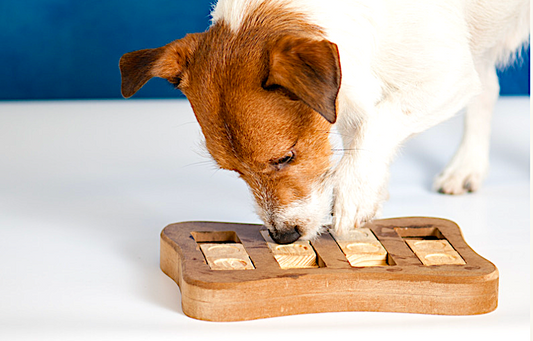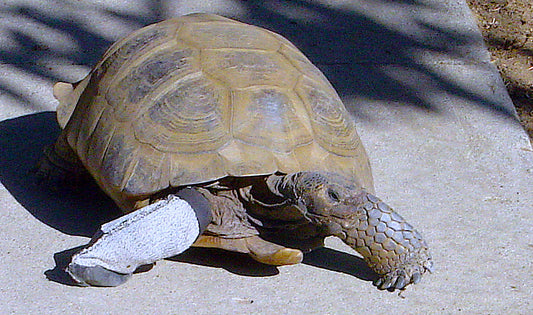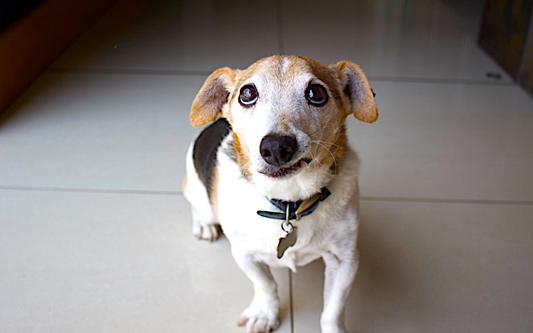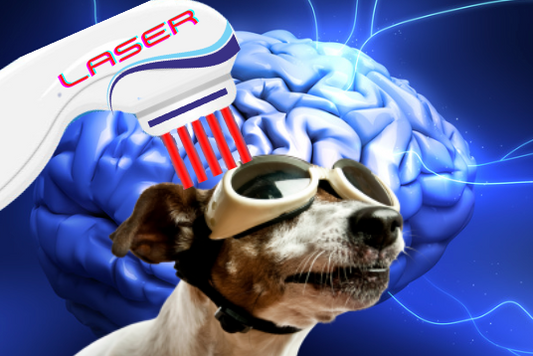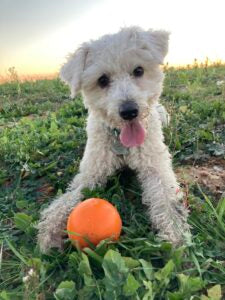The adoption of a dog or another pet during COVID-19 is an unprecedented situation. Your first few weeks' experience will vary depending on where you are located geographically and how serious the situation is there. In Spain, where I live, having a dog at home allows a person to go out for 10 minutes three times a day so to walk the dog. This is much needed respite from the heavily implemented quarantine (for both humans and dogs).
In the United States, there has been an increase in the number of dog and cat adoptions compared to years past. In fact, nationwide, there has been an unprecedented interest in adopting pets — and thus has created a shortage of animals in shelters (ERSKINE, 2020). We consider that a victory, as long as these animals are going to good homes! In times of need, a dog or cat is not just a pet but a good companion to help with our restlessness. It also helps to relieve our stress and anxiety.

On the contrary, Spain has been at maximum alert since March 15, 2020. It is second to Italy with the highest number of coronavirus-related deaths. However, the country is beginning to see hope on the horizon. The number of deaths during the past few days have been declining. On the other hand, because of the fear of contagion, economic problems and loss of jobs, it may be difficult to adopt, foster or rescue dogs and cats in the country.
To adopt, a specific permit is required from a veterinarian in order for the pets to get transferred from one center to another in the region. Unlike in the past, where an adoption center will talk to another center to facilitate the process, now it becomes impossible for this to take place — and thus it prevents an animal from going to a loving family.
Here is the case of a dog named Tallarin, a one-year-old Belgian Malinois. The owner left the dog tied at the gate of an animal shelter in Baza (Granada, Spain). The dog is one of many that has been abandoned and left malnourished. Due to the lack of space, another shelter called Los Amigos del Bingo (Friends of Bingo) in Coria Del Rio in Seville had to drive to the area to pick up Tallarin.
The dog's ordeal was not as easy. Friends of Bingo had to hire a special taxi service to use as animal transportation, apply for a permit to move around the city, and finally get a veterinary permit to pick up and bring the dog home to the shelter. It is an example of heroism on the part of the volunteer to do what it takes to save an animal. The pandemic is not only about saving human lives, but also about saving dogs and cats that have been abandoned by their owners.
Many of the shelters like Friends of Bingo are without resources due to the lockdown. Dog and cat adoptions have had to be cancelled because of the changes put in place during the lockdown. Animal shelters that used to get help are now in difficult positions. Because people from all walks of life have been left unemployed, nowadays, donations have almost ceased to exist. If you can, consider donating to shelters in need.

Tallarin, the Belgian Malinois, is now recovering from malnutrition. Although he still has not fully recovered, through my advice and together with the team from the animal shelter, we are working hard with his problems: fear of strangers, avoidance, and stress and anxiety. Since he is still a puppy at one year old, it is never too late to work on his behavior.
It is important that he gets mental stimulation (such as games), the ability to stroll along the center and the ability to interact with puppies of his age. The team needs to demonstrate strong leadership so that Tallarin can tell who is in command, which is important in building the rapport and confidence necessary for him to grow into a well-balanced dog. Once he has fully recovered, emotionally and physically, he’ll be on his way to foster care.
Adoption is the most humane thing we can do for dogs and cats. We need to bear in mind that not all animals at shelters come from a happy home or background. Some may have had bad experiences; their adaptation to a new place will take time and lots of patience. A traumatized dog will avoid people and hide the moment she arrives home. This is not the time to give up. Healings can take months or even longer. Patience, love and support are the key to open her heart. In the end, the reward will be great.

Here are some good pointers that we all need to consider when adopting or fostering rescued animals:
- Get as much information about the animal’s history as you can. This includes age, where and how she was found, and her behavior with humans as well with other animals.
- By knowing the type of behavior to expect, we can learn how to work with it. Do not use your gut instinct. It’s important to consult a dog trainer or speak with someone at the shelter for advice.
- A dog should have a place she can call home. She needs a comfortable and quiet area. Scents such as Lavender, Chamomile or other pheromone products can stimulate a relaxing sensation. Relaxing products are not miraculous cures but a coping aid for her first few days. Calm music can help too.
- Never play with the dog when she is tired, scared or nervous. Give her some time and space. Water and a toy (Kong, for example) with little treats inside can be beneficial.
- The dog should know the exact time for her meals. This will depend on the age and breed of the dog. Consult the nearest veterinarian for information on the type of food and the frequency she should eat in a day. Never leave a bowl with food on the floor. Remove it 20 minutes after she is finished.
- It is essential that the dog keeps a scheduled daily routine and learns to stay in her room at times even when the owner is at home. It is a good way to develop self-confidence.
- Never take food away from the dog while she is eating. Also, don’t wake her up while she is sleeping.
- When the dog arrives home, do not integrate her immediately with the rest of the pack (if you have multiple dogs and pets). The acceptance must be monitored, carefully and gradually. The pack needs to get used to smelling the newcomer and vice versa. Introduction must be made in a controlled environment in the presence of the owner as the pack leader.
- Allow the animal to come to you, and not the other way around. Give her space to go roam around so she knows that none of her new environment is a threat to her.
- When learning to understand the character of the new dog, reward good behavior with toys, treats and kind words. Avoid making corrections right away. It will scare her away. If the dog is behaving improperly, plainly saying, 'No,' is enough. Learn to redirect the dog's behavior when something is wrong by implementing exercise or games.
- When the dog feels frightened, avoid caressing or speaking to her. Simply remain calm and quiet, at her side. It will give her a sense of security.
Please learn to adhere to these pointers. It will aid in creating a strong bond with your dog (or cat or other pet). For help, contact the staff at your local animal shelter or seek the advice of a professional dog trainer or an animal expert in behavioral modification.
By adopting, you are giving your new dog or cat a home sweet forever home. Thank you.
Author: Pilar Garrido
Link: https://dogwhispererhq.com/home/f/how-to-train-and-rehabilitate-your-new-adopted-dog-during-covid-1
References:
ERSKINE, C. (2020). The Latest Shortage? Dogs And Cats, As Folks Foster And Adopt Pets During Quarantine. Retrieved from https://www.latimes.com/california/story/2020-04-02/requests-to-foster-and-adopt-pets-surge-as-coronavirus-keeps-us-at-home
The Human Society of the United States. (2020). Top reasons to adopt a pet. Retrieved from https://www.humanesociety.org/resources/top-reasons-adopt-pet
'Los Amigo del Bingo' (Friends of Bingo).
